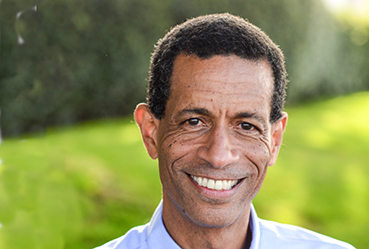The Scale of the Problem
Nearly half of the six million pregnancies in the US are unplanned, and unplanned pregnancy is one of the strongest predictors of future poverty for mothers and children alike.
While planned pregnancies are associated with all kinds of positive outcomes for women’s and children’s health and a family’s future, unplanned pregnancies are associated with premature birth, disrupted education, and poor physical and mental health for women. Today, only 20% of federally funded healthcare centers available to patients from underserved communities provide a full range of contraceptive options. The financial burden of unplanned pregnancies is staggering, every year costing Medicaid alone $20 billion.
>40%
of unplanned pregnancies result from ineffective contraception methods
33%
of female high school dropouts left school as a result of becoming a parent
>$20B
annual Medicaid costs of unplanned births in the US
A Promising Solution
Expanding contraceptive access can help break the cycle of multi-generational poverty for the millions of women who have unplanned pregnancies annually and save taxpayers billions of dollars. Upstream USA provides on-site training and technical assistance to health and family planning centers so they can offer access in a single visit to the full range of safe, effective contraceptives with an intentional focus on the communities that have not been served within the healthcare system.
25%
reduction in births from unintended pregnancies in Delaware
$700M
estimated Medicaid savings in a single year from a mere 5% reduction in unplanned pregnancies
98%
of Delaware patients feel that health center staff listen to them and their preferences
Blue Meridian's Investment
Our initial investment in 2017 supported Upstream USA’s plan to scale their contraceptive care model in four states and demonstrate reductions in the unintended pregnancy rate. Building on Upstream USA’s significant progress since then, we made an additional investment in 2023 aimed at supporting Upstream’s plan to transform contraceptive care nationwide by partnering with healthcare organizations to reach 5 million patients annually by 2030.
Up to $172.5 million committed since 2017
Achieve sustained practice change in health centers serving 5 million women of reproductive age annually, nationwide
Pursue strategic priorities to support accelerated scale and sustained impact – including improvements in training and technical assistance to health centers.
Why We Are Excited About Upstream USA
Every organization in our Nationwide Solutions investment portfolio has embarked on significant scaling and continues to make progress toward their goals. Here are some highlights of Upstream USA's potential for continued growth, which motivated us to make an additional investment:
Leadership in a Changing Context
The 2022 Dobbs decision by the Supreme Court, which overturned Roe vs. Wade, has greatly changed the landscape of reproductive health in the United States and dramatically amplified the impact of an unintended pregnancy. As states continue to navigate new policy environments related to abortion access—and as health centers struggle to keep up—more women and children stand to experience downstream impacts of unplanned pregnancy. Upstream USA remains the largest US organization using an evidence-based, sustainable program model focused on improving contraceptive access in the primary care setting and is well-positioned to play a national leadership role in the post-Dobbs era.

Promising Success to Date
Since launching in 2014, Upstream has grown from training a single health center in Amarillo, Texas serving just 4,000 women of reproductive age to partnering with more than 125 health centers across multiple states reaching almost 800,000 women of reproductive age.
After Upstream launched its first statewide initiative in Delaware in 2014, the state experienced a 25% population-level reduction in unplanned births and an independent evaluation showed that the initiative is associated with an increase in long-acting reversible contraceptives (LARC) uptake among clients, outperforming other states in a statistically significant way.

Sustainable Economics
Upstream’s training of health clinics is time-bound and ensures that access to the full range of contraception is embedded in their practice. This approach benefits increasing numbers of women and families for years to come, long after training is completed and Upstream exits.

Scaling Upstream USA Nationally
Co-founder and CEO Mark Edwards shares how Upstream USA's partnership with Blue Meridian contributes to the expansion of contraceptive access nationwide.

About Upstream USA
Founded in 2014, Upstream USA partners with states to provide health centers with patient-centered, evidence-based training and technical assistance that eliminate barriers to offering the full range of contraception. Upstream works directly with physicians, obstetrician-gynecologists, nurses, nurse practitioners, midwives, medical assistants and administrative staff to ensure a tailored, cohesive experience for the whole team.
Mark Edwards
Co-founder and CEO
Mark Edwards, co-founder and CEO of Upstream USA, is a nationally recognized leader on the intersection of upward mobility and reproductive health care. Previously, Edwards founded and directed Opportunity Nation, a bipartisan campaign by 300 national nonprofits to expand economic mobility through federal policy reform. A Draper Richards Kaplan Foundation Entrepreneur and an Ashoka Fellow, Edwards graduated from Harvard College.

Why Is It So Hard to Get Effective Birth Control in the US?
Co-Founder and CEO Mark Edwards discusses Upstream USA’s nationwide effort to expand access to high-quality contraceptive care by integrating it into primary health care settings.

News About Upstream USA
Amid pandemic, NC women need better healthcare access
Media
Jul 29, 2020
Delaware transformed its health care system for women — here’s how | Opinion
Media
Jul 26, 2020
From Promising Model to Major Investment
Media
Mar 1, 2019
Set It and Forget It: How Better Contraception Could Be a Key to Reducing Poverty
Media
Dec 18, 2018
There’s a Surprisingly Easy Way to Reduce Unplanned Pregnancies
Media
May 3, 2018
What Makes A Nonprofit Big Bettable?
Media
Nov 1, 2017
The Link Uniting Donors and Doers for Social Change
Media
Oct 13, 2017
Website Helps Delaware Women Get Free Birth Control, Rides to Health Clinics
Media
Jul 25, 2017
“This Could Be Life Changing”
Media
Dec 16, 2016
Upstream USA and Governor Markell Announce Private Funding to Improve Women’s Health
Media
Feb 24, 2016
Amid pandemic, NC women need better healthcare access
Media
Jul 29, 2020
Delaware transformed its health care system for women — here’s how | Opinion
Media
Jul 26, 2020
From Promising Model to Major Investment
Media
Mar 1, 2019
Set It and Forget It: How Better Contraception Could Be a Key to Reducing Poverty
Media
Dec 18, 2018
There’s a Surprisingly Easy Way to Reduce Unplanned Pregnancies
Media
May 3, 2018
What Makes A Nonprofit Big Bettable?
Media
Nov 1, 2017
The Link Uniting Donors and Doers for Social Change
Media
Oct 13, 2017
Website Helps Delaware Women Get Free Birth Control, Rides to Health Clinics
Media
Jul 25, 2017
“This Could Be Life Changing”
Media
Dec 16, 2016
Upstream USA and Governor Markell Announce Private Funding to Improve Women’s Health
Media
Feb 24, 2016
Amid pandemic, NC women need better healthcare access
Media
Jul 29, 2020
Delaware transformed its health care system for women — here’s how | Opinion
Media
Jul 26, 2020
From Promising Model to Major Investment
Media
Mar 1, 2019
Set It and Forget It: How Better Contraception Could Be a Key to Reducing Poverty
Media
Dec 18, 2018
There’s a Surprisingly Easy Way to Reduce Unplanned Pregnancies
Media
May 3, 2018
What Makes A Nonprofit Big Bettable?
Media
Nov 1, 2017
The Link Uniting Donors and Doers for Social Change
Media
Oct 13, 2017
Website Helps Delaware Women Get Free Birth Control, Rides to Health Clinics
Media
Jul 25, 2017
“This Could Be Life Changing”
Media
Dec 16, 2016
Upstream USA and Governor Markell Announce Private Funding to Improve Women’s Health
Media
Feb 24, 2016
Amid pandemic, NC women need better healthcare access
Media
Jul 29, 2020
Delaware transformed its health care system for women — here’s how | Opinion
Media
Jul 26, 2020
From Promising Model to Major Investment
Media
Mar 1, 2019
Set It and Forget It: How Better Contraception Could Be a Key to Reducing Poverty
Media
Dec 18, 2018
There’s a Surprisingly Easy Way to Reduce Unplanned Pregnancies
Media
May 3, 2018
What Makes A Nonprofit Big Bettable?
Media
Nov 1, 2017
The Link Uniting Donors and Doers for Social Change
Media
Oct 13, 2017
Website Helps Delaware Women Get Free Birth Control, Rides to Health Clinics
Media
Jul 25, 2017
“This Could Be Life Changing”
Media
Dec 16, 2016
Upstream USA and Governor Markell Announce Private Funding to Improve Women’s Health
Media
Feb 24, 2016
Amid pandemic, NC women need better healthcare access
Media
Jul 29, 2020
Delaware transformed its health care system for women — here’s how | Opinion
Media
Jul 26, 2020
From Promising Model to Major Investment
Media
Mar 1, 2019
Set It and Forget It: How Better Contraception Could Be a Key to Reducing Poverty
Media
Dec 18, 2018
There’s a Surprisingly Easy Way to Reduce Unplanned Pregnancies
Media
May 3, 2018
What Makes A Nonprofit Big Bettable?
Media
Nov 1, 2017
The Link Uniting Donors and Doers for Social Change
Media
Oct 13, 2017
Website Helps Delaware Women Get Free Birth Control, Rides to Health Clinics
Media
Jul 25, 2017
“This Could Be Life Changing”
Media
Dec 16, 2016
Upstream USA and Governor Markell Announce Private Funding to Improve Women’s Health
Media
Feb 24, 2016
Amid pandemic, NC women need better healthcare access
Media
Jul 29, 2020
Delaware transformed its health care system for women — here’s how | Opinion
Media
Jul 26, 2020
From Promising Model to Major Investment
Media
Mar 1, 2019
Set It and Forget It: How Better Contraception Could Be a Key to Reducing Poverty
Media
Dec 18, 2018
There’s a Surprisingly Easy Way to Reduce Unplanned Pregnancies
Media
May 3, 2018
What Makes A Nonprofit Big Bettable?
Media
Nov 1, 2017
The Link Uniting Donors and Doers for Social Change
Media
Oct 13, 2017
Website Helps Delaware Women Get Free Birth Control, Rides to Health Clinics
Media
Jul 25, 2017
“This Could Be Life Changing”
Media
Dec 16, 2016
Upstream USA and Governor Markell Announce Private Funding to Improve Women’s Health
Media
Feb 24, 2016
Amid pandemic, NC women need better healthcare access
Media
Jul 29, 2020
Delaware transformed its health care system for women — here’s how | Opinion
Media
Jul 26, 2020
From Promising Model to Major Investment
Media
Mar 1, 2019
Set It and Forget It: How Better Contraception Could Be a Key to Reducing Poverty
Media
Dec 18, 2018
There’s a Surprisingly Easy Way to Reduce Unplanned Pregnancies
Media
May 3, 2018
What Makes A Nonprofit Big Bettable?
Media
Nov 1, 2017
The Link Uniting Donors and Doers for Social Change
Media
Oct 13, 2017
Website Helps Delaware Women Get Free Birth Control, Rides to Health Clinics
Media
Jul 25, 2017
“This Could Be Life Changing”
Media
Dec 16, 2016
Upstream USA and Governor Markell Announce Private Funding to Improve Women’s Health
Media
Feb 24, 2016
Amid pandemic, NC women need better healthcare access
Media
Jul 29, 2020
Delaware transformed its health care system for women — here’s how | Opinion
Media
Jul 26, 2020
From Promising Model to Major Investment
Media
Mar 1, 2019
Set It and Forget It: How Better Contraception Could Be a Key to Reducing Poverty
Media
Dec 18, 2018
There’s a Surprisingly Easy Way to Reduce Unplanned Pregnancies
Media
May 3, 2018
What Makes A Nonprofit Big Bettable?
Media
Nov 1, 2017
The Link Uniting Donors and Doers for Social Change
Media
Oct 13, 2017
Website Helps Delaware Women Get Free Birth Control, Rides to Health Clinics
Media
Jul 25, 2017
“This Could Be Life Changing”
Media
Dec 16, 2016
Upstream USA and Governor Markell Announce Private Funding to Improve Women’s Health
Media
Feb 24, 2016
Amid pandemic, NC women need better healthcare access
Media
Jul 29, 2020
Delaware transformed its health care system for women — here’s how | Opinion
Media
Jul 26, 2020
From Promising Model to Major Investment
Media
Mar 1, 2019
Set It and Forget It: How Better Contraception Could Be a Key to Reducing Poverty
Media
Dec 18, 2018
There’s a Surprisingly Easy Way to Reduce Unplanned Pregnancies
Media
May 3, 2018
What Makes A Nonprofit Big Bettable?
Media
Nov 1, 2017
The Link Uniting Donors and Doers for Social Change
Media
Oct 13, 2017
Website Helps Delaware Women Get Free Birth Control, Rides to Health Clinics
Media
Jul 25, 2017
“This Could Be Life Changing”
Media
Dec 16, 2016
Upstream USA and Governor Markell Announce Private Funding to Improve Women’s Health
Media
Feb 24, 2016
Amid pandemic, NC women need better healthcare access
Media
Jul 29, 2020
Delaware transformed its health care system for women — here’s how | Opinion
Media
Jul 26, 2020
From Promising Model to Major Investment
Media
Mar 1, 2019
Set It and Forget It: How Better Contraception Could Be a Key to Reducing Poverty
Media
Dec 18, 2018
There’s a Surprisingly Easy Way to Reduce Unplanned Pregnancies
Media
May 3, 2018
What Makes A Nonprofit Big Bettable?
Media
Nov 1, 2017
The Link Uniting Donors and Doers for Social Change
Media
Oct 13, 2017
Website Helps Delaware Women Get Free Birth Control, Rides to Health Clinics
Media
Jul 25, 2017
“This Could Be Life Changing”
Media
Dec 16, 2016
Upstream USA and Governor Markell Announce Private Funding to Improve Women’s Health
Media
Feb 24, 2016
Amid pandemic, NC women need better healthcare access
Media
Jul 29, 2020
Delaware transformed its health care system for women — here’s how | Opinion
Media
Jul 26, 2020
From Promising Model to Major Investment
Media
Mar 1, 2019
Set It and Forget It: How Better Contraception Could Be a Key to Reducing Poverty
Media
Dec 18, 2018
There’s a Surprisingly Easy Way to Reduce Unplanned Pregnancies
Media
May 3, 2018
What Makes A Nonprofit Big Bettable?
Media
Nov 1, 2017
The Link Uniting Donors and Doers for Social Change
Media
Oct 13, 2017
Website Helps Delaware Women Get Free Birth Control, Rides to Health Clinics
Media
Jul 25, 2017
“This Could Be Life Changing”
Media
Dec 16, 2016
Upstream USA and Governor Markell Announce Private Funding to Improve Women’s Health
Media
Feb 24, 2016
Amid pandemic, NC women need better healthcare access
Media
Jul 29, 2020
Delaware transformed its health care system for women — here’s how | Opinion
Media
Jul 26, 2020
From Promising Model to Major Investment
Media
Mar 1, 2019
Set It and Forget It: How Better Contraception Could Be a Key to Reducing Poverty
Media
Dec 18, 2018
There’s a Surprisingly Easy Way to Reduce Unplanned Pregnancies
Media
May 3, 2018
What Makes A Nonprofit Big Bettable?
Media
Nov 1, 2017
The Link Uniting Donors and Doers for Social Change
Media
Oct 13, 2017
Website Helps Delaware Women Get Free Birth Control, Rides to Health Clinics
Media
Jul 25, 2017
“This Could Be Life Changing”
Media
Dec 16, 2016
Upstream USA and Governor Markell Announce Private Funding to Improve Women’s Health
Media
Feb 24, 2016
Amid pandemic, NC women need better healthcare access
Media
Jul 29, 2020
Delaware transformed its health care system for women — here’s how | Opinion
Media
Jul 26, 2020
From Promising Model to Major Investment
Media
Mar 1, 2019
Set It and Forget It: How Better Contraception Could Be a Key to Reducing Poverty
Media
Dec 18, 2018
There’s a Surprisingly Easy Way to Reduce Unplanned Pregnancies
Media
May 3, 2018
What Makes A Nonprofit Big Bettable?
Media
Nov 1, 2017
The Link Uniting Donors and Doers for Social Change
Media
Oct 13, 2017
Website Helps Delaware Women Get Free Birth Control, Rides to Health Clinics
Media
Jul 25, 2017
“This Could Be Life Changing”
Media
Dec 16, 2016
Upstream USA and Governor Markell Announce Private Funding to Improve Women’s Health
Media
Feb 24, 2016
Amid pandemic, NC women need better healthcare access
Media
Jul 29, 2020
Delaware transformed its health care system for women — here’s how | Opinion
Media
Jul 26, 2020
From Promising Model to Major Investment
Media
Mar 1, 2019
Set It and Forget It: How Better Contraception Could Be a Key to Reducing Poverty
Media
Dec 18, 2018
There’s a Surprisingly Easy Way to Reduce Unplanned Pregnancies
Media
May 3, 2018
What Makes A Nonprofit Big Bettable?
Media
Nov 1, 2017
The Link Uniting Donors and Doers for Social Change
Media
Oct 13, 2017
Website Helps Delaware Women Get Free Birth Control, Rides to Health Clinics
Media
Jul 25, 2017
“This Could Be Life Changing”
Media
Dec 16, 2016
Upstream USA and Governor Markell Announce Private Funding to Improve Women’s Health
Media
Feb 24, 2016
Amid pandemic, NC women need better healthcare access
Media
Jul 29, 2020
Delaware transformed its health care system for women — here’s how | Opinion
Media
Jul 26, 2020
From Promising Model to Major Investment
Media
Mar 1, 2019
Set It and Forget It: How Better Contraception Could Be a Key to Reducing Poverty
Media
Dec 18, 2018
There’s a Surprisingly Easy Way to Reduce Unplanned Pregnancies
Media
May 3, 2018
What Makes A Nonprofit Big Bettable?
Media
Nov 1, 2017
The Link Uniting Donors and Doers for Social Change
Media
Oct 13, 2017
Website Helps Delaware Women Get Free Birth Control, Rides to Health Clinics
Media
Jul 25, 2017
“This Could Be Life Changing”
Media
Dec 16, 2016
Upstream USA and Governor Markell Announce Private Funding to Improve Women’s Health
Media
Feb 24, 2016
Amid pandemic, NC women need better healthcare access
Media
Jul 29, 2020
Delaware transformed its health care system for women — here’s how | Opinion
Media
Jul 26, 2020
From Promising Model to Major Investment
Media
Mar 1, 2019
Set It and Forget It: How Better Contraception Could Be a Key to Reducing Poverty
Media
Dec 18, 2018
There’s a Surprisingly Easy Way to Reduce Unplanned Pregnancies
Media
May 3, 2018
What Makes A Nonprofit Big Bettable?
Media
Nov 1, 2017
The Link Uniting Donors and Doers for Social Change
Media
Oct 13, 2017
Website Helps Delaware Women Get Free Birth Control, Rides to Health Clinics
Media
Jul 25, 2017
“This Could Be Life Changing”
Media
Dec 16, 2016
Upstream USA and Governor Markell Announce Private Funding to Improve Women’s Health
Media
Feb 24, 2016